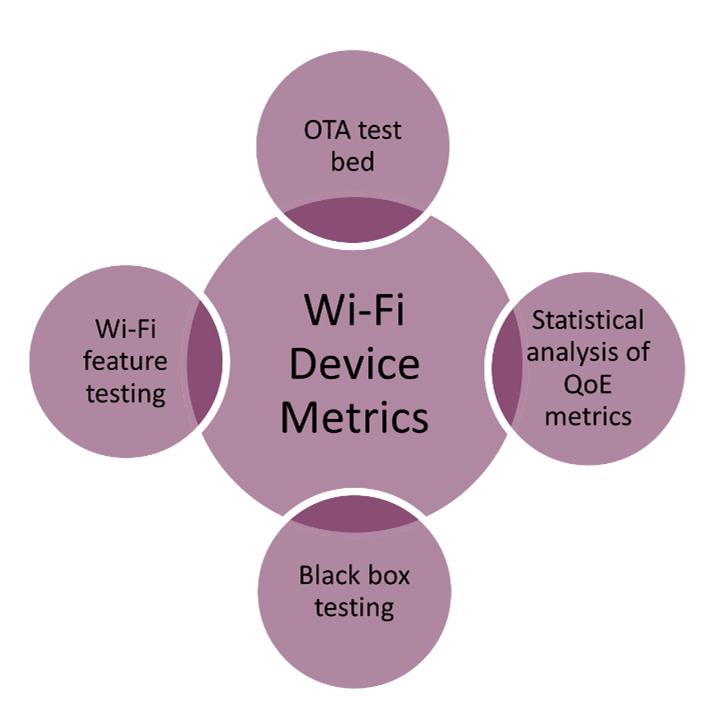 The ubiquity of Wi-Fi® has made it the primary technology for internet access. Wi-Fi’s reliability, seamlessness, capacity and security are the four performance pillars which determines end user’s quality of experience (QoE) for use cases including video streaming, AR/VR/XR and video/audio conferencing. It is therefore important for Internet Service Providers (ISP) to thoroughly test their Wi-Fi solutions from the perspective of their customers’ expected QoE. Operators need a Wi-Fi test methodology which is repeatable, reproducible, and has a quick turnaround time in providing performance metrics.
The ubiquity of Wi-Fi® has made it the primary technology for internet access. Wi-Fi’s reliability, seamlessness, capacity and security are the four performance pillars which determines end user’s quality of experience (QoE) for use cases including video streaming, AR/VR/XR and video/audio conferencing. It is therefore important for Internet Service Providers (ISP) to thoroughly test their Wi-Fi solutions from the perspective of their customers’ expected QoE. Operators need a Wi-Fi test methodology which is repeatable, reproducible, and has a quick turnaround time in providing performance metrics.
Although the Wi-Fi CERTIFIED™ program from Wi-Fi Alliance® provides assurances of interoperability among different Wi-Fi enabled devices, the overall performance of a Wi-Fi enabled device is dependent on multiple factors such as device form factor, system (hardware and software) design, and the use cases supported by the device. Wi-Fi performance testing plays a central role in the design and life cycle management of a Wi-Fi enabled device.
 Wi-Fi Alliance introduced Wi-Fi Device Metrics as an industry wide effort, which has formulated best practices on various aspects of characterizing Wi-Fi performance, such as test bed setup, statistical analysis, feature performance, black box and Wi-Fi KPI testing. The guidelines were created from the perspective of an end user, who expects a ‘plug and play’ experience for Wi-Fi installation and usage. Wi-Fi product manufacturers can now simply benchmark and optimize Wi-Fi features like AP roaming, channel switching and band steering in a uniform way. Along with proposing improvements on traditional throughput measurements, Wi-Fi Device Metrics has also addressed methods to measure latency under load.
Wi-Fi Alliance introduced Wi-Fi Device Metrics as an industry wide effort, which has formulated best practices on various aspects of characterizing Wi-Fi performance, such as test bed setup, statistical analysis, feature performance, black box and Wi-Fi KPI testing. The guidelines were created from the perspective of an end user, who expects a ‘plug and play’ experience for Wi-Fi installation and usage. Wi-Fi product manufacturers can now simply benchmark and optimize Wi-Fi features like AP roaming, channel switching and band steering in a uniform way. Along with proposing improvements on traditional throughput measurements, Wi-Fi Device Metrics has also addressed methods to measure latency under load.
For Liberty Global, this test plan is a welcome effort in formulating a ‘common language’ among Wi-Fi integrators, operators, silicon vendors and test equipment manufacturers to benchmark and optimize Wi-Fi performance. The benefits of this collaboration will be perceived by end users who will have a more reliable and consistent Wi-Fi experience.
The statements and opinions by each Wi-Fi Alliance member and those providing comments are theirs alone, and do not reflect the opinions or views of Wi-Fi Alliance or any other member. Wi-Fi Alliance is not responsible for the accuracy of any of the information provided by any member in posting to or commenting on this blog. Concerns should be directed to info@wi-fi.org.




Add new comment